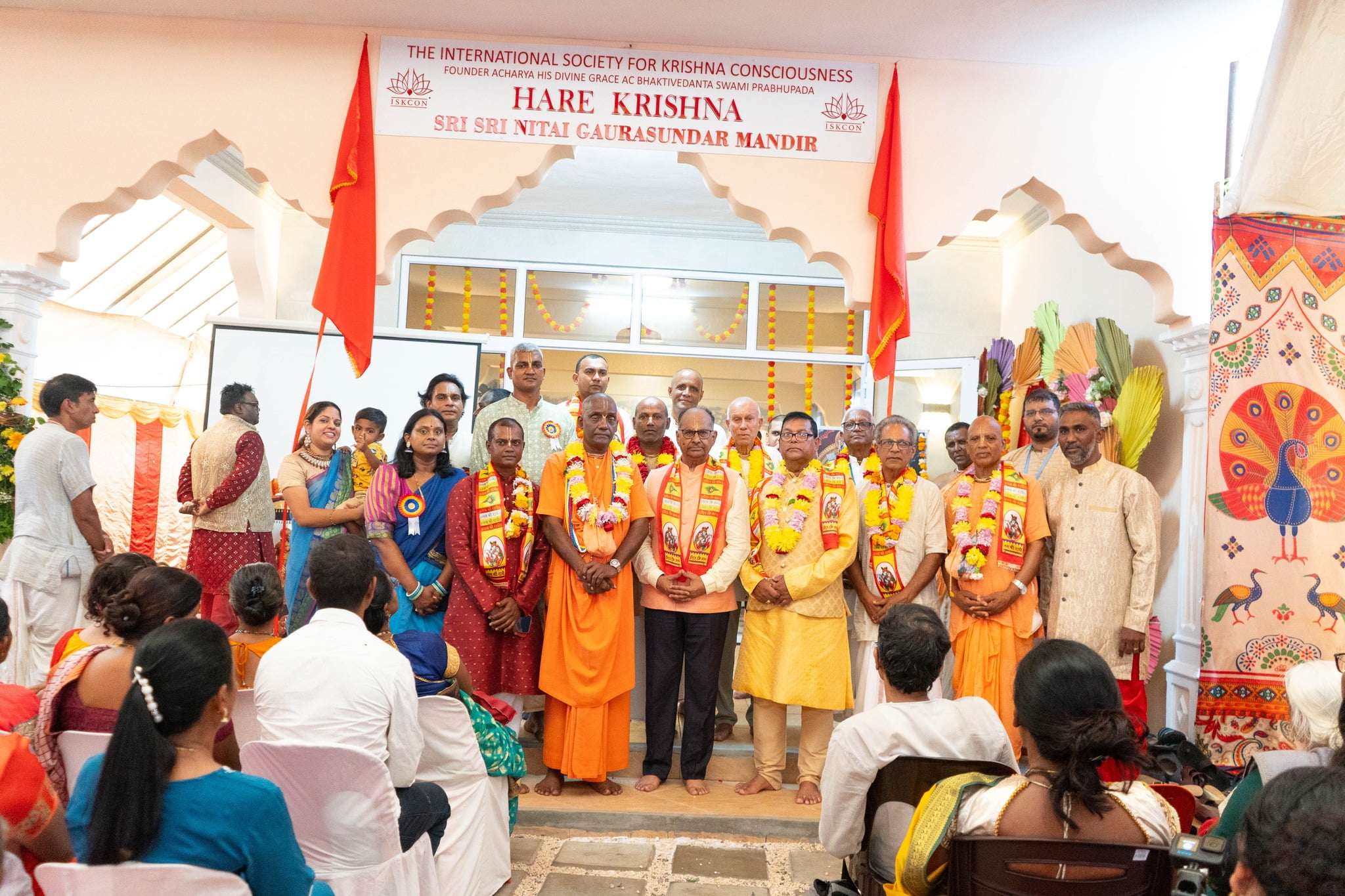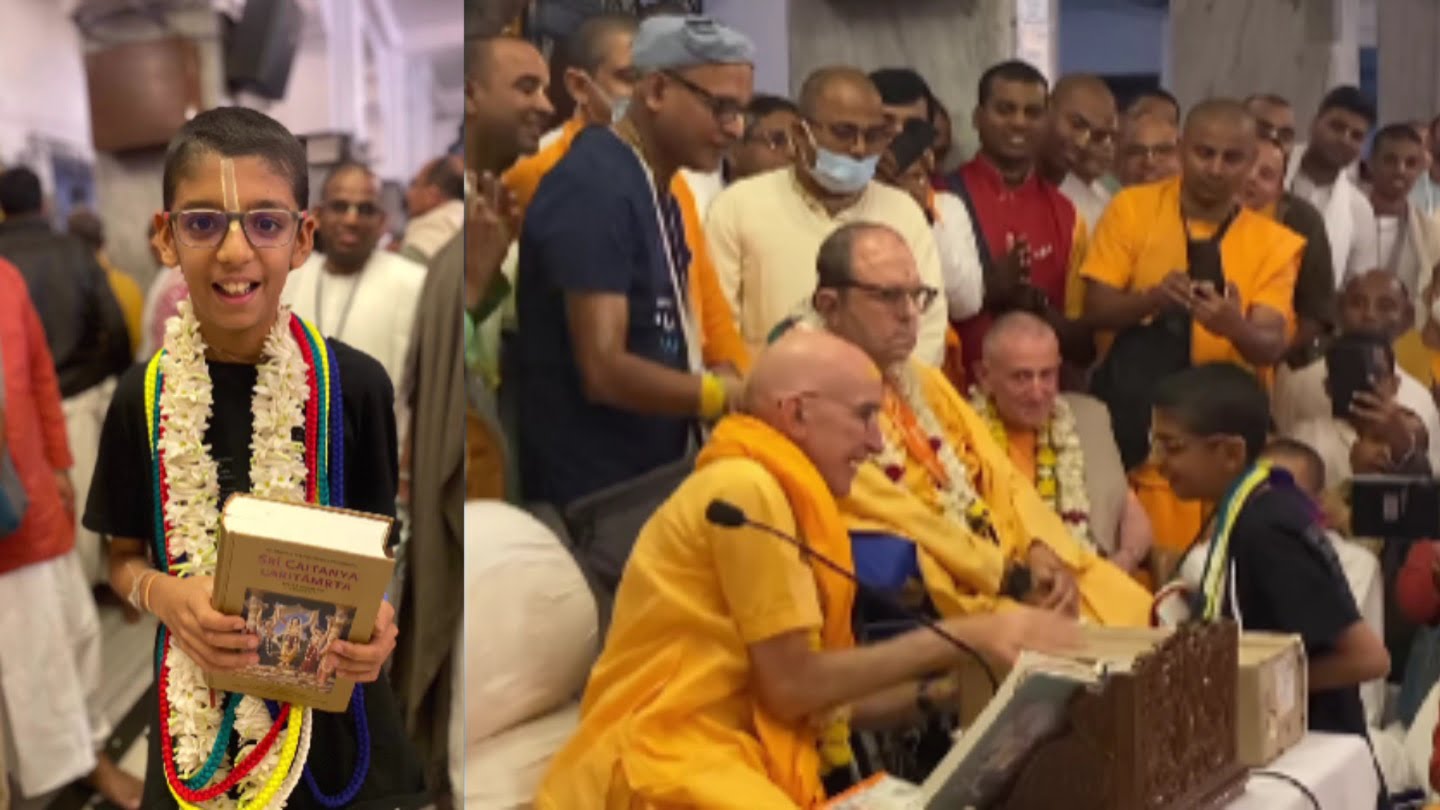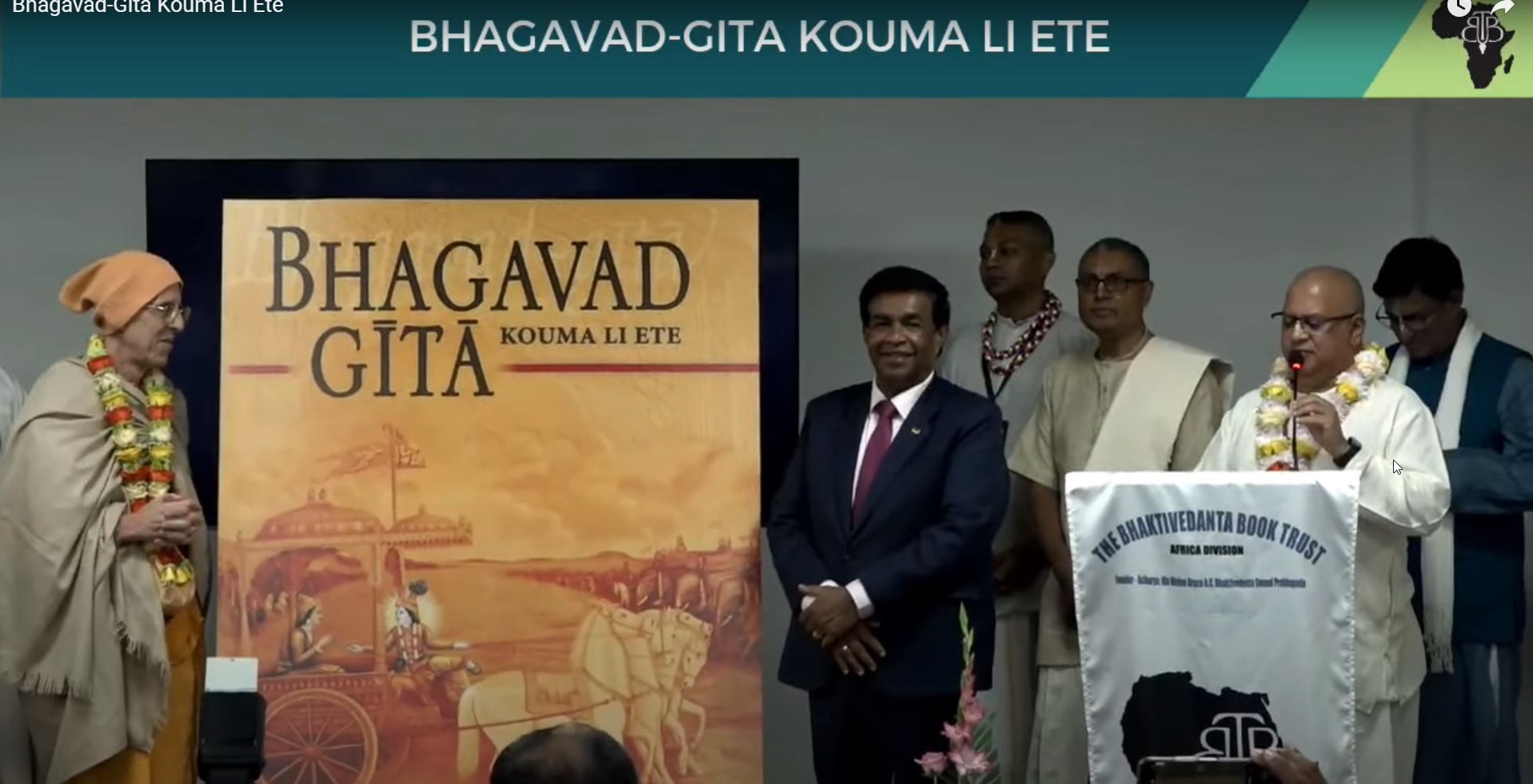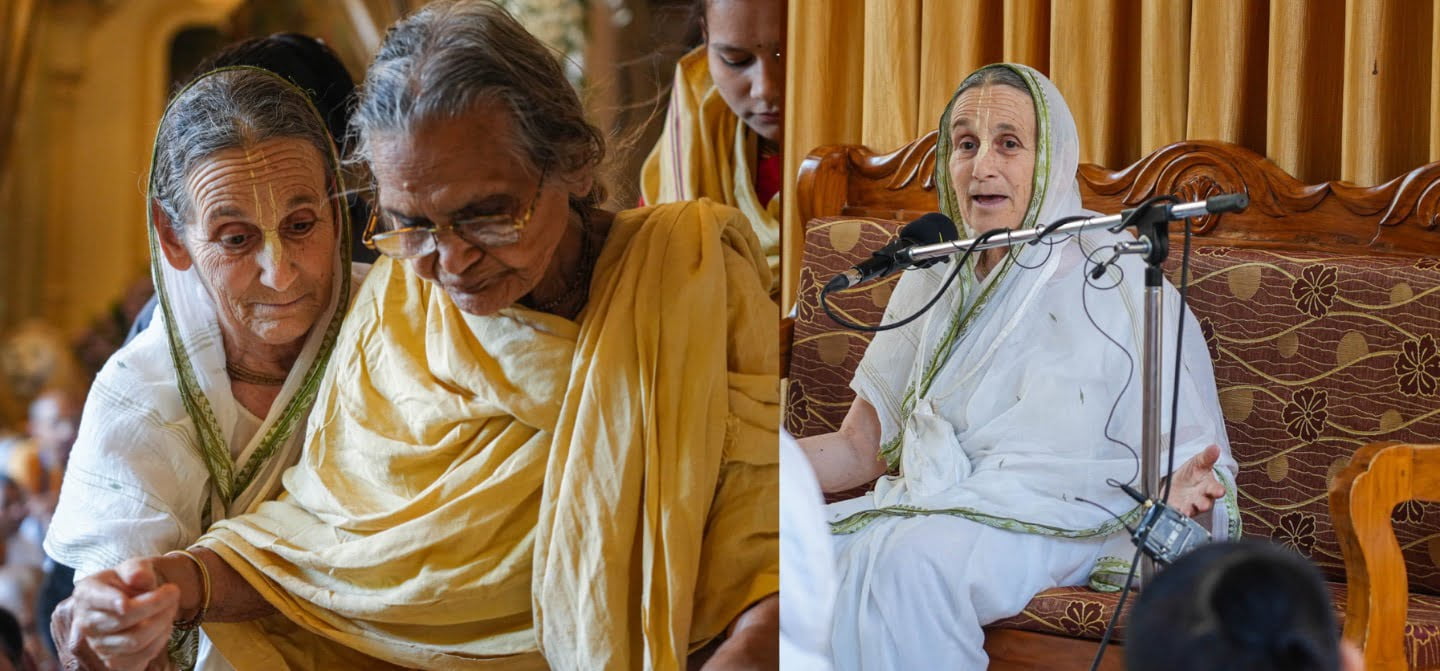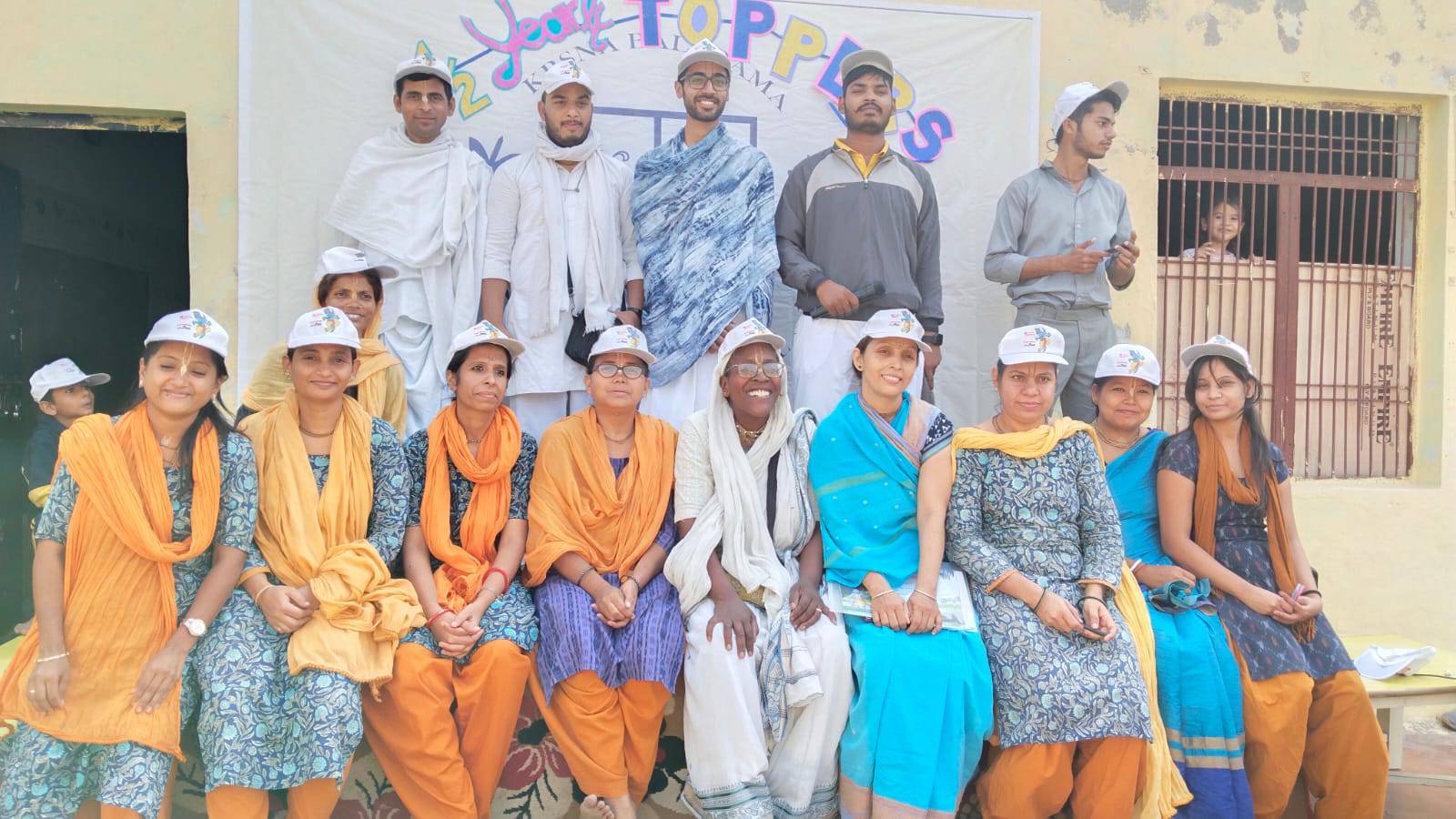“The Poison is Personal Ambition”
By Devaki Devi Dasi | Jul 02, 2008
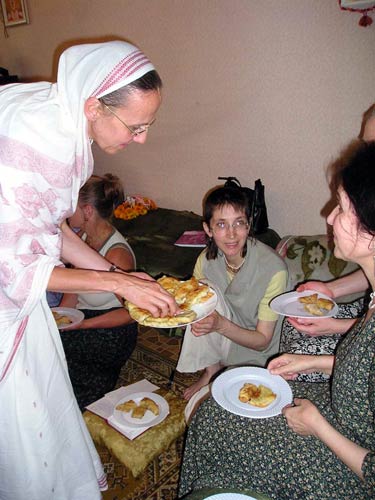
The highlight of my visit to Mayapur this year was Anuttama Prabhu’s seminar on leadership and management—an extremely valuable course, which teaches so many important skills and principles of effective leadership and management.
Taking this course confirmed my realization that there is another reason why we have lost so many devotees worldwide over the past years besides the fact that we have failed to create a supportive spiritual culture which would give nourishment and shelter to each and every devotee joining this movement. We have also failed to educate and train our leaders systematically and equip them with the necessary skills in order to become true servant-leaders, who lead with affection and detachment. Rather we have so often allowed that dangerous weed to grow and flourish: the attachment to power, position and facilities…
So often we take “management” to mean “keeping devotees under control,” and a management position can nearly become a license for exercising the tendency of wanting to be in power and position over others—a licence for being a little “supreme controller.”
I remember once HH Bhakti Tirtha Maharaja saying in a seminar in Mayapur: “There are some leaders in ISKCON who wouldn’t be devotees if they were not leaders.” What a bold statement!
I also remember one devotee who had been a temple president for several years, once saying to me in confidence, after he had stopped being active in ISKCON: “When I joined I could very clearly see that ISKCON has such a structure that if you do the right thing for some years, you get into power and position. And that was my motive.” He had been honest enough to make such statement—how many others would never dare to admit it…
A leader who is attached to power and position will not allow others to come up. He will see them as a threat to his position and therefore will keep them down. This creates a very discouraging and stiffling atmosphere, not giving any space and possibility for personal growth and development. And as a result the entire project doesn’t grow and develop. Such a leader will surround himself with “Yes-men,” who simply hope to also get into power and position one day, after saying “yes” long enough.
Intelligent people will not want to be part of this and go somewhere else, or feel so discouraged in their attempts to develop themselves spiritually, that they get back into developing themselves materially. I have observed this going on in many places.
Over the past years devotees often complained to me about discouraging leadership and management in their yatras; I didn’t take this seriously, thinking them too critical, only finding faults. I had no experience of what it’s like to work under discouraging authorities, having left the Australian yatra as a rather young devotee, after being in Krishna consciousness for four years only.
It was in 1989—I had just gotten married, and we ventured all the way to Latvia in order to start the preaching there. It was such exciting pioneer work, right at the end of the Soviet days. I had had the perfect environment to grow and develop myself; life was full of dynamic transcendental adventures and challenges. My only direct authorities had been my spiritual master and our local GBC’s. This is most likely how I survived until today, as an active and happy devotee.
I had no experience of what it’s like to serve under temple authorities day-in and day-out, and I simply couldn’t imagine that they wouldn’t always be supportive and encouraging.
Anuttama Prabhu’s course was indeed an eye-opener in this regard. I came to understand that, apart from so many other important skills, we hadn’t taught our leaders how to delegate and empower others—even though Srila Prabhupada was such a perfect example of being expert at both: empowering his new and inexperienced disciples and delegating.
Interestingly enough, in the secular world it is common knowledge that a ‘servant-leader,’ one who is expert at delegating and empowering others, achieves a much higher productivity, profit, and growth of a company than an autocratic leader, and as a result the secular world is so much ahead of us in applying our own principles in regards to leadership and management.
They are prepared to pay thousands of Dollars to such a manager who would know how to empower others and expand the company. And if he wasn’t doing a good job he would be replaced—autocratic leaders had gone out of fashion.
But somehow not (yet) in ISKCON—maybe because we are not so profit-orientated and therefore might not realize how much faster we could expand, if we simply had more qualified leaders?
Certainly no serious institution or company would ever put a person into a leading position unless he had the adequate training and education in the first place. But in ISKCON, it seems, we have never thought of this, even though it is well known how important leadership is for the development of a project.
Srila Prabhupada’s famous letter to Karandhara in 1972 comes to my mind, where he describes good leadership in a nutshell:
“Our leaders shall be careful not to kill the spirit of enthusiastic service, which is individual and spontaneous and voluntary. They should try always to generate some atmosphere of fresh challenge to the devotees, so that they will agree enthusiastically to rise and meet it. That is the art of management: to draw out spontaneous loving spirit of sacrificing some energy for Krishna. But where are so many expert managers? All of us should become expert managers and preachers.”
No doubt, to fulfill this vision of Srila Prabhupada requires the cultivation of training, combined with purity of heart. So often we put devotees in leading positions on grounds of some material ability, not paying much attention to their personal spiritual practise, or their motivations. Maybe we are too attached to externals: big and quick results. Externals are satisfying to the senses and the mind, a result of the mode of passion. We tend to forget the internals: to purify our motives and cultivate a taste for hearing and chanting. Krishna is mainly interested in our motives, with which we are offering our service, and not so much in the offering itself.
A common trap for leaders is that a big workload can lead to further neglect of one’s spiritual life, and as a result the weeds of attachment are growing, rather than the bhakti lata.
In another letter Srila Prabhupada writes in 1970:
“So these two things are always side by side — Maya and Krishna — Krishna is service and Maya is sense gratification, so every moment we are prone to be subjugated by either of them. Our duty is therefore to be very, very careful. The poison is personal ambition.”
Maybe we have allowed this poison of personal ambition to hamper the development of many yatras. One might say: but don’t we have to be very careful in judging other’s motivations? How to recognize whether we are driven by personal ambition or pure desire to serve Srila Prabhupada and spread Krishna consciousness?
The answer is: it will manifest in our ways of associating with equals. A person driven by personal ambition will find it very difficult to work with equals. He can only work with juniors, who are willing to accept and follow him. A leader who is attached to power and position can not tolerate an equal person next to him, and he will not be prepared to share his territory with another influential person.
A true servant leader will be happy to share responsibility with like-minded equals. His only desire is to serve and inspire the devotees, and he is not concerned where the inspiration comes from: himself or another person. Since he is not attached to power and position he will never feel threatened, but will simply be happy to serve in any capacity. He is free from envy.
Equal association is very powerful, intensely purifying: the most subtle anarthas are coming to the surface. Therefore HH Radhanath Maharaja is recommending the following formular: out of 100% time for association, 60% should be spent with equals, 20% with juniors, and 20% with one’s Guru and the Guru’s godbrothers.
Reality shows, though, that many seniors or leaders prefer to surround themselves at least 60%–80% of their time with juniors, and rarely do they have close and affectionate relationships with equals.
During this year’s visit to Sri Mayapur I discussed this topic with as many devotees as I could: with seniors and GBC’s, and with friends. Amazingly enough: again several devotees came up to me and poured out their heart about exactly this issue—without knowing that I was having those same realizations. They were relating to me how they felt so discouraged and unwanted by their temple authorities. It seemed as if Krishna wanted to strongly confirm this realization in my heart.
My conclusion is: we have to systematically train our leaders and managers, if we want to keep our devotees happy and enthusiastically serving in ISKCON for their whole lives. I am convinced that if we give solid training to our leaders and take care of the devotees by creating a supportive culture we will have a real “Hare Krishna explosion,” and our GBC’s won’t have to spend most of their precious time and energy solving conflicts!



